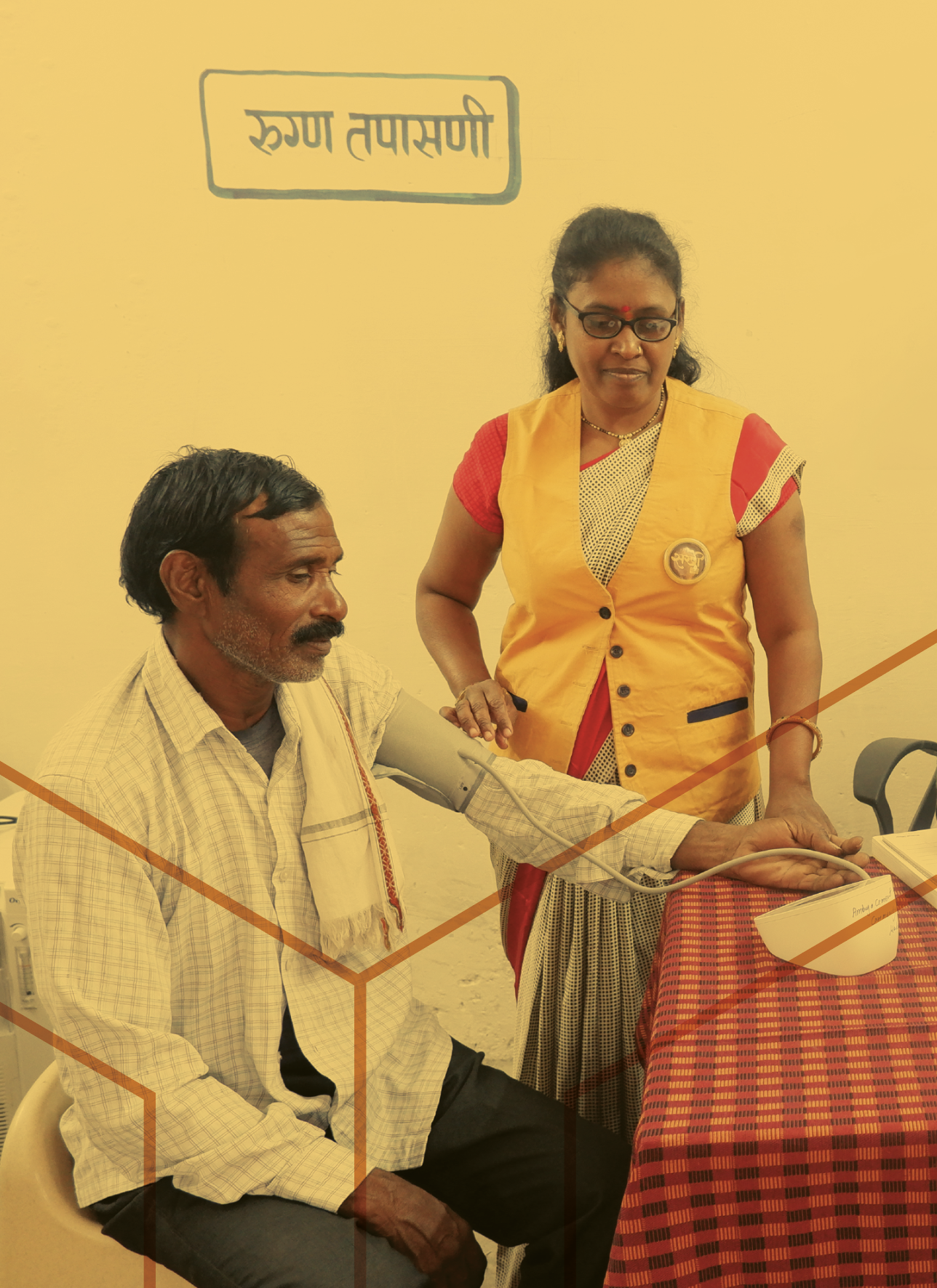Villages: Sonurli & Wadgoan, Chandrapur
Outreach: 3240 people
Project: Community Clinics to sustainably address the health needs of community
Rural India accounts for nearly 69% of the total population, yet only has 26% of total hospital beds and 33% of total healthcare professionals. A popular way in the past to address this vast need, whilst ensuring last mile reach, was the Mobile Medical Van (MVM) model – with both the government, and private NGOs like ACF, running MVM programs to tackle pressing rural health needs.
But in 2011, ACF began to realise the shortcomings of the MVM program – it was an expensive program to run, was limited in terms of the regularity and extent of service it could provide villagers, and it generally created a ‘dependence’ among communities, with pressure to scale the initiative.
Nowhere was this more acutely felt than in Chandrapur, Maharashtra, where government health services were between 30-100 km away from villages with a largely scheduledtribe population. Putting their heads together, the team at ACF in Chandrapur knew there had to be a better way!
It was on an exposure visit to see community initiatives in Sewagram District, that the ACF team members came across one possible solution. Here they found a ‘clinic’ which was being operated by the local community and immediately saw the potential to adopt a similar model – modifying it to meet stakeholder needs – to address the health needs in their communities in a more sustainable and effective manner.
And so working with community members, pilot programs were launched in Sonurli and Wadgaon villages in 2013 to assess its effectiveness. The unique selling point (USP) of this model was the fact that it was community owned and operated – with ACF merely providing support to set up centres, covering the costs of visiting medical staff and helping strengthen the local Village Development Committee (VDC) in overseeing its operation.
And the new venture paid off! In what was a win-win for both ACF and the community, the community clinic solved the problems. ACF was able to significantly reduce its program costs, enabling the scale and replication of this model to many more rural communities; and communities finally had a ‘hub’ for accessing a variety of curative, preventative and promotive health care services on a regular basis. It was a far cry from the MVM model, which saw a doctor visiting the community just once in every 15 days!
Under the Community Clinic model, villages have access to a visiting doctor and paramedical officer once a week; all year round access to medication availability; a variety of screening tests at a reasonable rate including NCDs, BP, Haemoglobin, Blood Sugar Levels, Nebulization, Oxygen Levels; education and awareness via regular workshops and behaviour change communication on a variety of non-communicable diseases; and access to a Sakhi 6 days in a week for consultation, advice and referral to relevant doctors. All in the comfort of their very own clinic!
The collaborative nature of the model is also unique – the local panchayat provided the building and renovated it ready for use, ACF fitted it out and stocked it with various technical equipment, furniture and facilities to create a viable operating centre; and the local Village Development Committee promoted the centre, collected community contributions, facilitated purchase of medicine, oversaw centre monitoring, maintained records and helped facilitate health camps hand in hand with ACF.
Villagers willingly paid for the service which was not only affordable and good quality, but convenient and comprehensive – finally solving the health woes of remote, tribal communities. So successful was the pilot model, tweaked and operated over a number of years, that ACF decided to scale the Community Clinic Model which is now operating sustainably – both in terms of financials and ownerships – with 12 clinics, reaching out to 52 villages in the process. And this is just the beginning, as ACF plans to further scale and replicate this model across other locations in the future – also introducing additional comprehensive health services like telemedicine to reach out to less agile and elderly housebound patients within the community.
Impacts
12 Clinics
Reaching 52 villages
Over 15,000+ People benefitted
Rs. 11,41,225 Corpus Fund Created


.jpg)




0 Comment